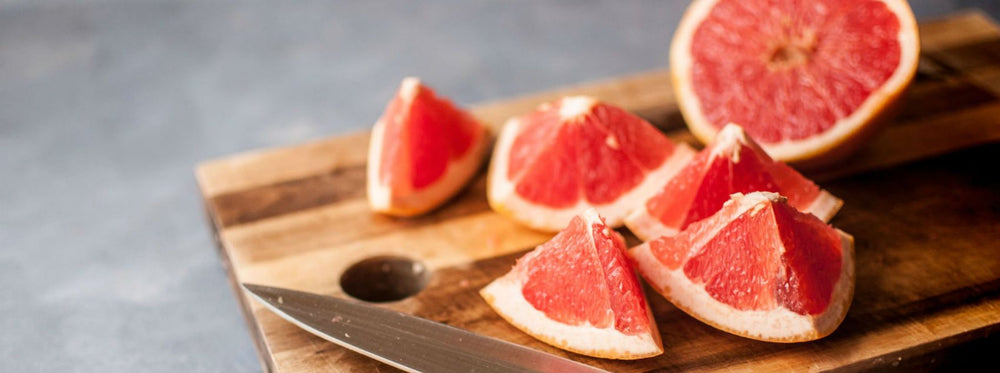What real food tastes like

Quick: Name three sweet foods you love. Now, name three bitter foods you love.
Which was easier?
If you’re like most Americans, you probably had no trouble coming up with your favorite sweet foods. Bitter, though? Most people struggle with those. Even though real food often tastes bitter.
Humans can taste five basic flavors: sweet, sour, salty, savory (also referred to as “umami”), and bitter. So real food can taste astringent. Sometimes it tastes acidic. And it can taste bitter. Think about dark chocolate, green tea, hoppy beer, red wine, greens such as Swiss chard and arugula, coffee, fruits such as lemon, lime and grapefruit.
Bitter taste comes from phytochemicals present naturally in fruits and vegetables, and these phenols, flavonoids, isoflavones and other compounds are known to have antioxidant and anticarcinogenic properties as well as a wide spectrum of tumor-blocking activities.
So why don’t we like bitter?
Many people (like my husband) do not like to eat vegetables—and the feeling is mutual. Plants protect themselves against being eaten by secreting phytochemicals that are almost always bitter, acrid, or astringent. These substances provide a defense against predators by making the plant unpalatable and reminiscent of truly poisonous substances. Sensitized to the bitter taste of poisons, humans reject foods that are perceived to be excessively bitter as a survival instinct.
The food industry is only too aware of this instinctual reaction. And it has responded by routinely removing phenols, flavonoids, isoflavones, and other bitter-tasting – but potentially health promoting - compounds from plant foods through a variety of debittering processes. This has resulted in an artificially bitter-free food landscape that makes real food not stripped of its natural bitterness or treated with bitter blockers or other maskers seem unusual and unpleasant to eat.
The truth is that food companies deploy chemists, technicians and even psychologists to create deliberately addictive food products with unnatural crunch, mouth feel, taste and aroma typically lacking a bitter note. These “foods” are often disproportionately sweet (Pepsi, Lucky Charms) or exceedingly salty (Cheetos, a Big Mac) - highlighting tastes we are especially drawn to because they're not instinctively associated with poison (even though the actual food may be really bad for us!). No wonder once we get a taste of those out-of-whack products our bodies respond by craving more sweet and salty items - and we tolerate bitter foods even less.
That’s especially unfortunate given that food cravings lead to weight gain – and bitter flavor helps control appetite. Studies have shown that consuming a bitter compound results in reduced food intake while activation of bitter taste receptors slow gastric emptying – meaning you eat less and stay fuller longer.
Real food prepared expertly is usually balanced in flavor, shines a light on the ingredients used, and allows some bitter to come through. But many of us have lost our appreciation for this way of eating. We even go out of our way to modify the tastes of bitter or acidic star ingredients by adding dairy, sweeteners or gobs of salt: Think about adding cream and sugar to coffee and tea, choosing milk chocolate over dark, or dousing broccoli with cheese sauce.
The less adulterated the food the better. The closer it is to its original form, the better. Often, that means the less sweet, the less salty, the more bitter, the better. Developing a taste for Brussels sprouts or dark chocolate might not seem like it’s doable for you right now, but over time, if you incorporate more and more REAL foods into your diet, you will actually start craving those instead of the items food manufacturers want you to keep eating.
Remember, our taste buds turn over every couple of weeks. With time and persistence, your taste buds and your quest for better health will be in sync. Here's to bitter!

Tested & Proven Results.
- Cardiologist formulated
- Supported by over 500 publications
- Clinically-proven, in a double-blind randomized trial with Mayo Clinic and The University of Manitoba
80% of participants lowered their cholesterol in just 30 days. With just two servings per day, Step One Foods offers a proven-effective way to naturally lower LDL (bad) cholesterol.
Get heart health tips and articles like this, delivered right to your email.
New articles every week.
You may also like...

What You Need to Know About GLP-1 Medications: Part 3

What You Need to Know About GLP-1 Medications: Part 2

You don’t need to avoid foods with cholesterol…except for these


